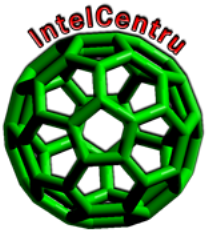| |
Scientific plan - Overview of the research projects in BioMat4CAST
RESEARCH PROJECTS
Project 4. Molecular modelling of biological membranes and transport trough them
1. Project Team leader
1. 1. BioMat4CAST Computing Team Members
|
Dr. Tudor Vasiliu, Dr Dragos Lucian Isaac, PhD student Razvan-Cristian Puf, PhD student Narcis Iulian Cibotariu
|
1. 2. Experimental Support for the Computational Team
| Dr. Bogdan Florin Craciun, Dr. Mihaela Silion, Dr. Dragos Peptanariu, Dr. Adina Coroaba |
2. Objectives
| Project 4 aims at improving the understanding of the structural, dynamical and functional features of biological membranes and ion channels by means of a variety of MD simulations techniques. |
3. Project Organization
Understanding permeation through ion channels in phospho-lipid membranes on molecular details: The intricate processes of life at the cellular level are governed significantly by ion channels, which are integral membrane proteins that form pores across the lipid bilayer. MD simulations have revolutionized our understanding of biological membranes and ion channels. These simulations allow us to observe the real-time interactions and movements of atoms and molecules, which is not always possible through experimental approaches. In the context of ion channels embedded in membranes, MD simulations provide critical insights into the structure-function relationship, channel gating mechanisms, ion selectivity, and conduction pathways. This computational approach is invaluable for bridging the gap between static structural data and dynamic functional behavior, offering a comprehensive understanding of these complex systems.
We approach the interaction between different complex systems from the other subproject and the cellular membrane from two directions.
Step 1: Firstly, we will study how the complex system interact with the membrane and with different membrane components (i.e. different receptors, proteins or other non-lipidic components).
Step 2: Secondly, we will simulate how different complex systems permeate the cellular membrane.
Step 3: based on understanding the formation of molecular aggregates and their interactions with various biomolecules or biological membranes at different levels we can predict their potential for innovative technological applications.
Initially this study will be focused on Magnesium transporter E (MgTE) and type F fluoride (Fluc-Ec) channels. These channels have been chosen because their functional mechanism is not fully understood.
The project will utilize advanced MD simulation techniques, incorporating the latest force fields and simulation protocols. High-performance computing resources will be employed to manage the computational demands of these large-scale simulations. The simulations will be complemented by already available experimental data from the literature, to validate and refine the models, and when/if necessary by experimental data collected by the team experimentally supporting the computational team.
This research is expected to yield detailed insights into the molecular mechanisms governing ion selectivity and conduction in MgTE and Fluc-Ec channels. The findings will have far-reaching implications, contributing to our understanding of ion channel function in health and disease and potentially guiding the development of targeted therapeutics.
|
Competences that will be acquired/improved by the computational team
| Development of force fields for lipids and receptors. MD simulations (standard, enhanced and with applied external Electric-field) for cell membranes and membrane proteins.
|
Competences expected from the supporting experimental team
| NMR spectroscopy, fluorescence and cryo electron microscopy
|
4. Instructors/trainers
| Prof. Alexander Lyubartsev (Stockholm University, Sweden) |
|
| Prof. Leif Eriksson (Gothenburg University, Sweden) |
|
| Dr Marc Baaden (Laboratoire de Biochimie Théorique CNRS, France) |
|
|
|


